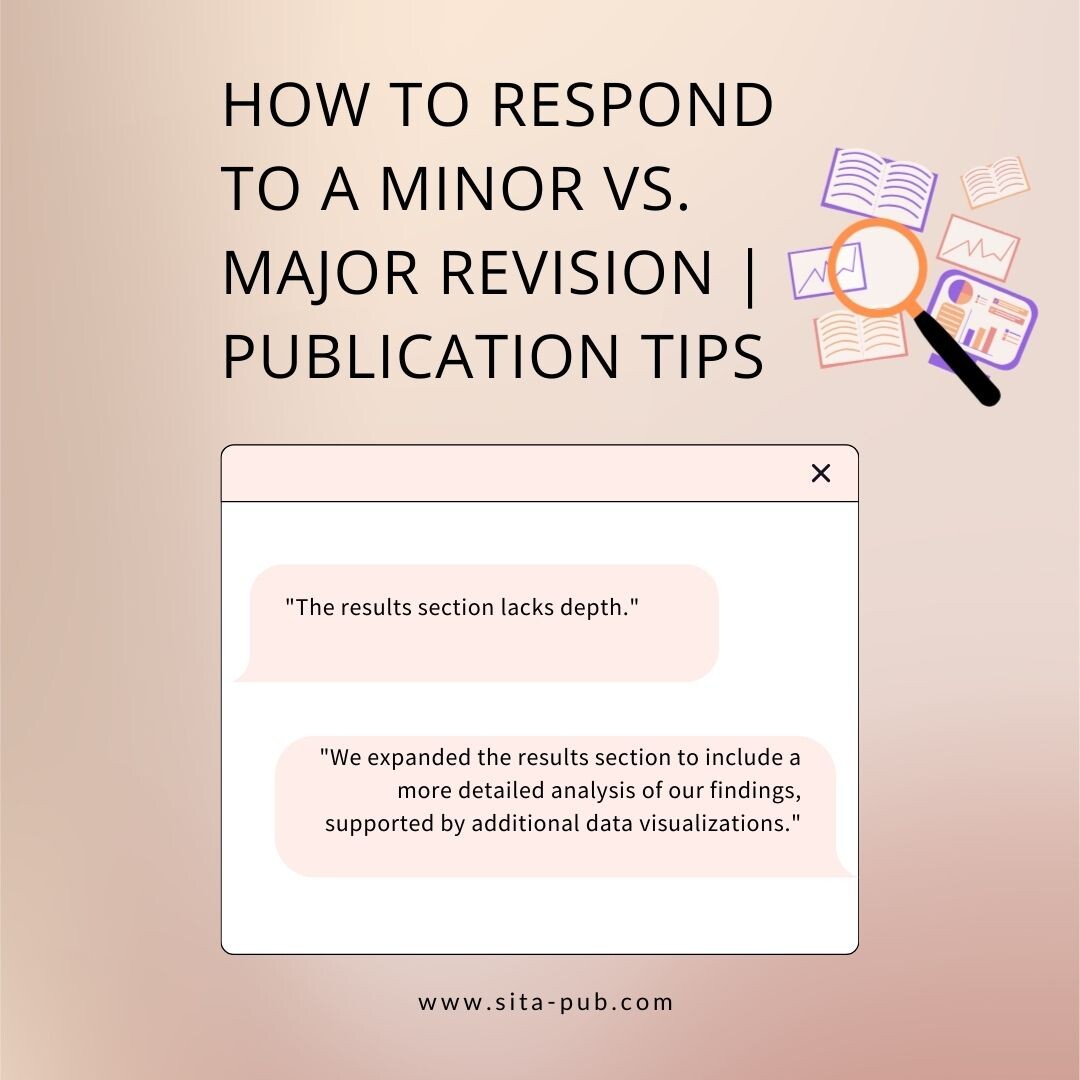How to Respond to a Minor vs. Major Revision | Publication tips


Submitting a research paper to an academic journal is an important step for any researcher. After submitting, you will often receive feedback from peer reviewers. This feedback leads to the next key step: revising your manuscript. Knowing how to respond to both minor and major revisions can greatly affect your chances of getting published. This guide will help you understand how to handle these two types of revisions effectively.

Minor revisions usually involve changes that do not change the main findings or conclusions of your paper. Common examples include:
Grammar and Spelling Errors: Fixing mistakes in spelling, punctuation, or awkward sentences.
Clarifications: Adding more details to specific sections to make things clearer.
Formatting Issues: Adjusting tables, figures, or references to meet the journal's requirements.

Thank the Reviewers: Start your response letter by expressing gratitude to the reviewers for their comments. Acknowledge their help and insights.
Address Each Comment: Create a response table that lists each reviewer comment with your reply. For minor changes, briefly explain how you addressed each point. For example:
Comment: "Please clarify the methodology in Section 2."
Response: "We added a sentence in Section 2 to clarify the methodology, explaining the sampling process."
Make Changes Quickly: Implement the suggested changes in your manuscript. Make sure all changes are clearly marked, especially if the journal requires a version with tracked changes.
Be Brief: Since minor revisions typically need less extensive changes, keep your responses short and focused. Avoid long explanations unless needed.
Resubmit Fast: Try to resubmit your revised manuscript as soon as possible. Doing this shows your commitment to the publication process and respect for the reviewers' efforts.

Major revisions mean that reviewers believe significant changes are needed before considering your manuscript for publication. These changes may include:
Revising the Structure: Changing the organization of the paper or how the content flows.
Additional Experiments: Conducting more experiments or analyses to address reviewer concerns.
Theoretical Changes: Reevaluating the theoretical framework or ideas presented in the paper.

Express Gratitude: Just like with minor revisions, begin your response letter by thanking the reviewers for their valuable feedback. Recognize how their insights have improved your manuscript.
Organize Your Response: Create a clear document that outlines each reviewer comment. For major revisions, provide detailed responses explaining how you plan to address each comment.
Comment: "The theoretical framework needs to be strengthened."
Response: "We revised the theoretical framework in Section 1 to include recent literature and provide a stronger basis for our hypotheses, adding several new references."
Detail Your Changes: For each comment, specify the changes made in the manuscript. If a comment requires significant changes, summarize your reasoning and the changes made. For example:
Comment: "The results section lacks depth."
Response: "We expanded the results section to include a more detailed analysis of our findings, supported by additional data visualizations."
Be Honest About Limitations: If you cannot implement certain suggestions, explain why clearly. Acknowledge the limitations and justify your choices.
Revise Thoroughly: Make sure your revisions address all major concerns raised by the reviewers. This may involve significant rewriting, additional experiments, or new analyses.
Resubmit Carefully: After making changes, proofread your manuscript and response document carefully. Ensure all revisions are highlighted according to the journal's guidelines.

Stay Professional: Keep a professional tone in your responses, regardless of your feelings about the reviewers' comments. View their feedback as an opportunity for improvement.
Seek Feedback: Before resubmitting, consider getting feedback from colleagues or mentors. A fresh perspective can help identify areas that need more clarity.
Keep Track of Changes: Document all changes made during the revision process. This will help you create a clear response letter and serve as a reference for future submissions.
Responding to revisions—whether minor or major—is an important skill for researchers. By understanding the feedback and approaching revisions systematically, you can improve the quality of your manuscript and increase its chances of publication. Remember, effective communication with reviewers and a commitment to improving your work are key to a successful publication journey.
If you’ve submitted your paper and received reviewer comments, we’re here to help! Whether you need assistance with structuring your revisions, formatting your manuscript, or editing for grammatical errors, our team is ready to support you. Let us help you enhance your work and improve your chances of publication.
If you have any questions, inquiries, or would like to learn more about our services, please don't hesitate to reach out to us. Our dedicated team is ready to assist you.
Why choose SITA Academy?




Premium quality
Satisfaction Guarantee
24/7 Services and Global Coverage
Team of Human Professionals